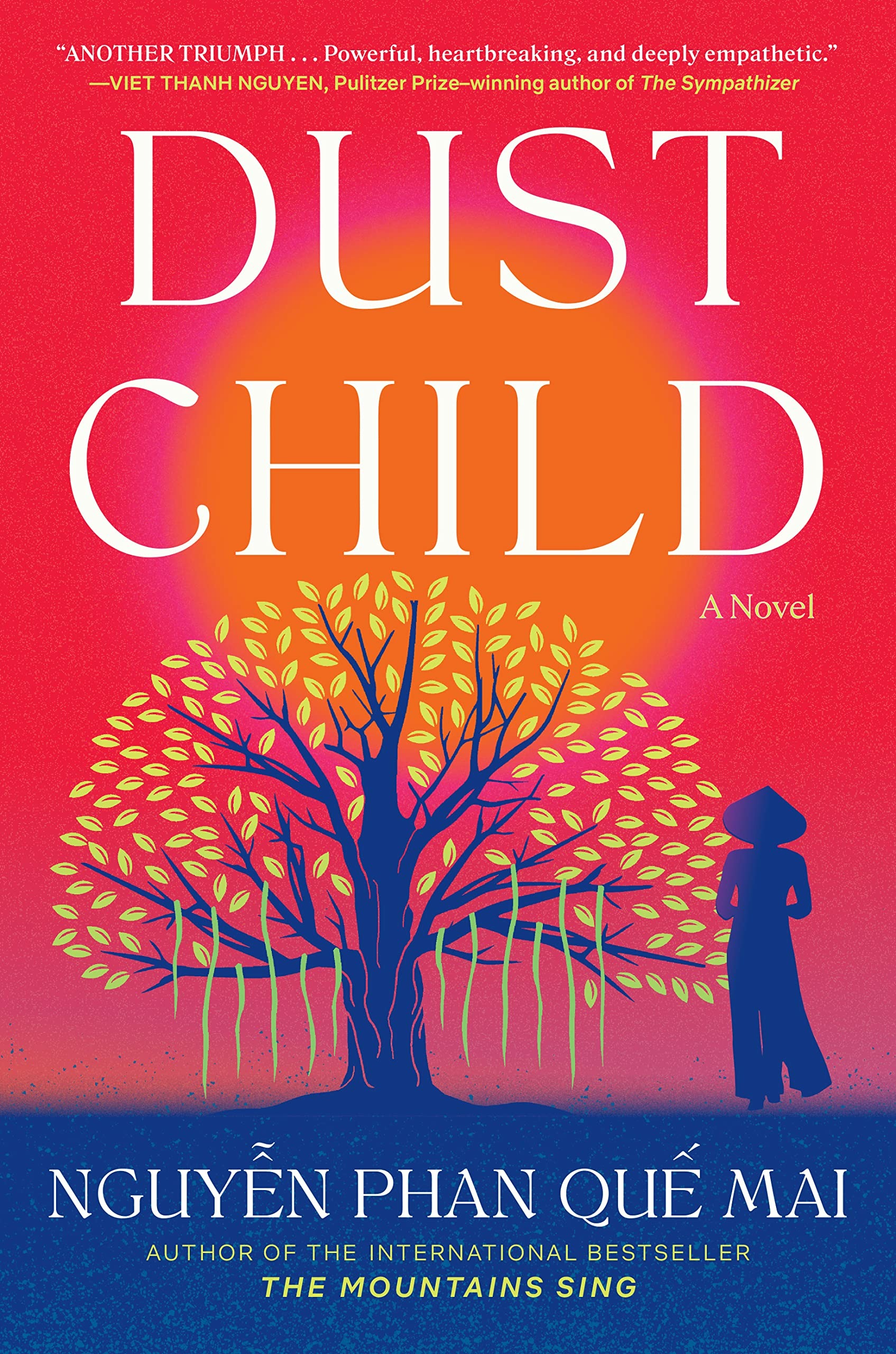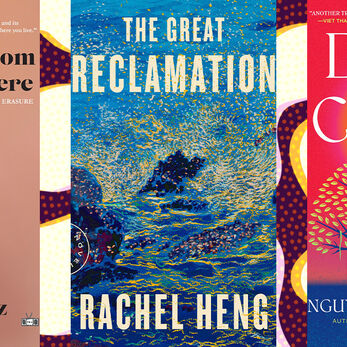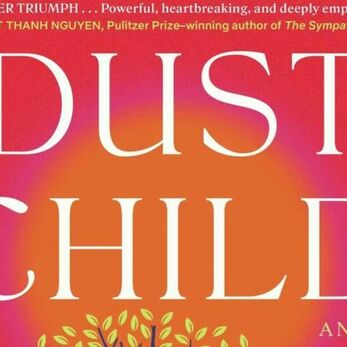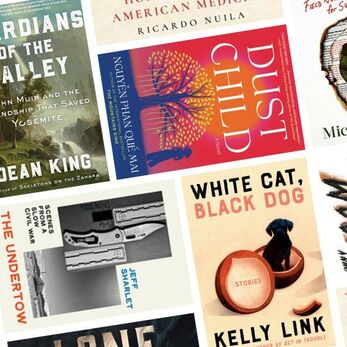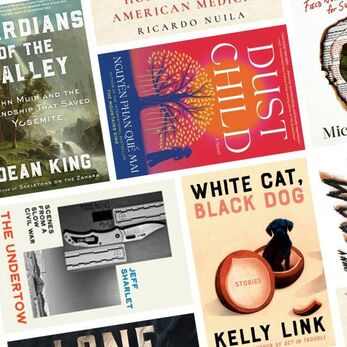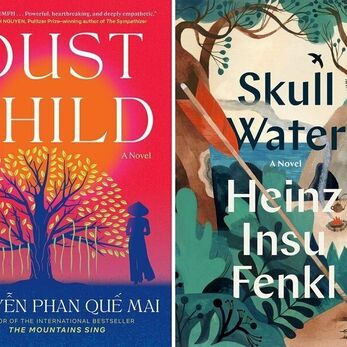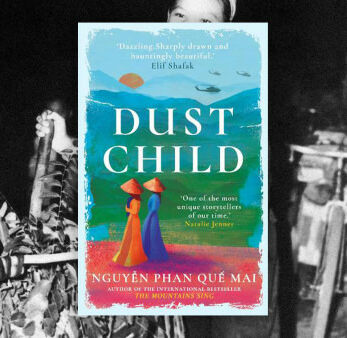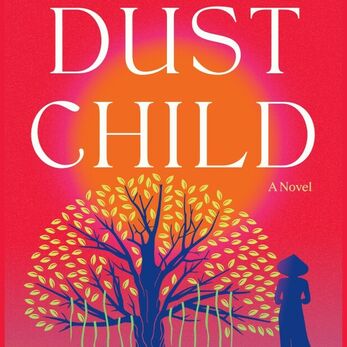(Algonquin) Review by Jinny Webber Published in March 2023, Nguyen Phan Que Mai’s Dust Child marks the fiftieth anniversary of the Americans pulling out of Viet Nam. Seeing and hearing about Viet …
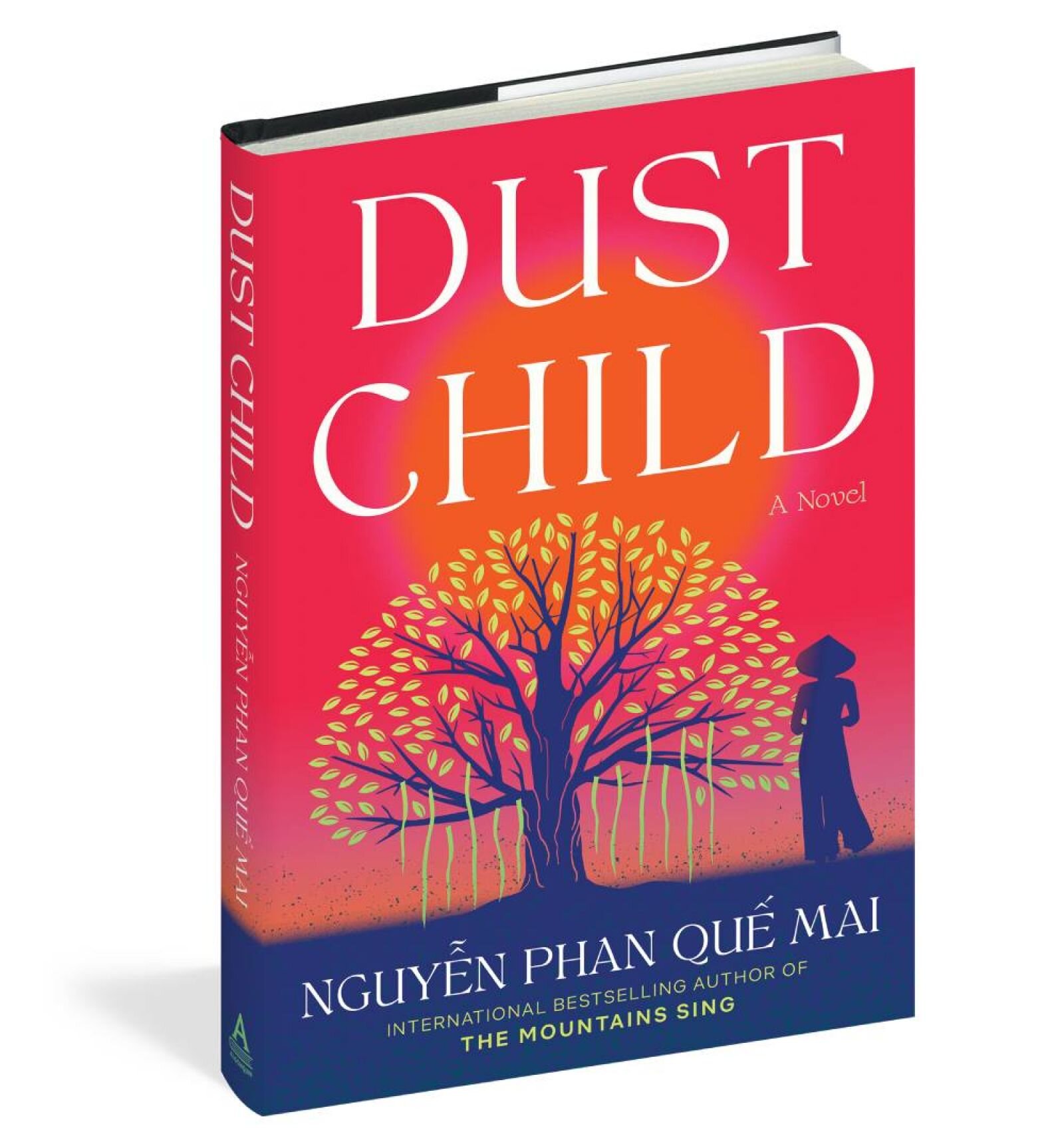
Published in March 2023, Nguyen Phan Que Mai’s Dust Child marks the fiftieth anniversary of the Americans pulling out of Viet Nam. Seeing and hearing about Viet Nam vets struggling with mental health and drug problems, homelessness, and PTSD even this long afterwards brings home the ongoing effects of that war. Many GI’s were boys of 18 or 19 when sent, and as we know from Tim O’Brien’s stories and elsewhere, had no idea why they were there. The Viet Cong and other potential enemies were said to value individual lives less than Westerners do.
Dust Child expands our vision. Some of the novel is set in 1969 during the war and some in 2016, when we see its consequences, with a final chapter in 2019, an epilogue of sorts. Chapters alternate between those eras and between three characters. Phong, the so-called child of dust of the title, is the half-black son of an American soldier and a Vietnamese mother, abandoned at an orphanage when an infant. Trang is the elder of two sisters who must leave their impoverished family farm and rice fields to become bar girls in Saigon. Dan, an American veteran, is visiting the Viet Nam he knew when a helicopter pilot. Phong, has long sought his father. This couldn’t be Dan, who is white, but he did father a child with his Vietnamese lover.
The war not only dramatically affects each of them—and Viet Nam itself— but leaves a deeply painful emotional legacy. Phong’s difficulties illustrate the plight of Amerasians growing up there, be they black or white. Even an orphanage isn’t safe in wartime, and all to soon he’s on his own, making his way as best he can. Trang is 18, her sister Quynh 16, when lured by a childhood friend who comes home to visit wearing beautiful clothes and being generous to everyone. She says they only need to drink tea with soldiers and entertain them. Innocent as they are, they believe her, though they lie to their parents about the job they’ll have in Saigon. Trang’s ambition for higher education was destroyed by the war. Dan, haunted by his helicopter killing from above, suffers PTSD. This has damaged his marriage to the girlfriend he returned to, who’s remained with him all these years and encouraged their trip to Viet Nam. Suspense builds between these three protagonists as their stories begin to intertwine.
Nguyen Phan Que Mai’s award-winning first novel, The Mountains Sing, 2020, has been translated world-wide. The New York Times Book Review praised it as absorbing and stirring, a “saga with a poet’s discipline . . . with a poet’s antenna for beauty in the most desolate circumstances.”
So too with Dust Child, beautifully evocative as Que Mai depicts the struggles and personal cost of that disastrous, misconceived war. When Dan and his wife visit a Saigon street market, an old woman is selling engraved Zippo lighters from American GI’s. On one is written
We are the unwilling Led by the unqualified Doing the unnecessary For the ungrateful.
A tragic axiom for the approximately 2,700,000 men from both sides who fought in Viet Nam, many drafted against their will and many still traumatized, and the sex industry some of them propelled, involving hundreds of thousands of Vietnamese women driven by economic necessity into prostitution. (Statistics from Author’s Note). This novel depicts the varying sorts of courage demanded by their nearly unspeakable challenges. How can one come to terms with a horrific past? How can humanity prevail?
Growing up in Viet Nam herself, Que Mai draws the reader into her country as it was and as it’s become in the twenty-first century. In her author’s note she says Dust Child grew out of her PhD research and years of interviews with Amerasians and their parents. She has beautifully fictionalized her knowledge and personal experience into an insightful, engrossing novel.

